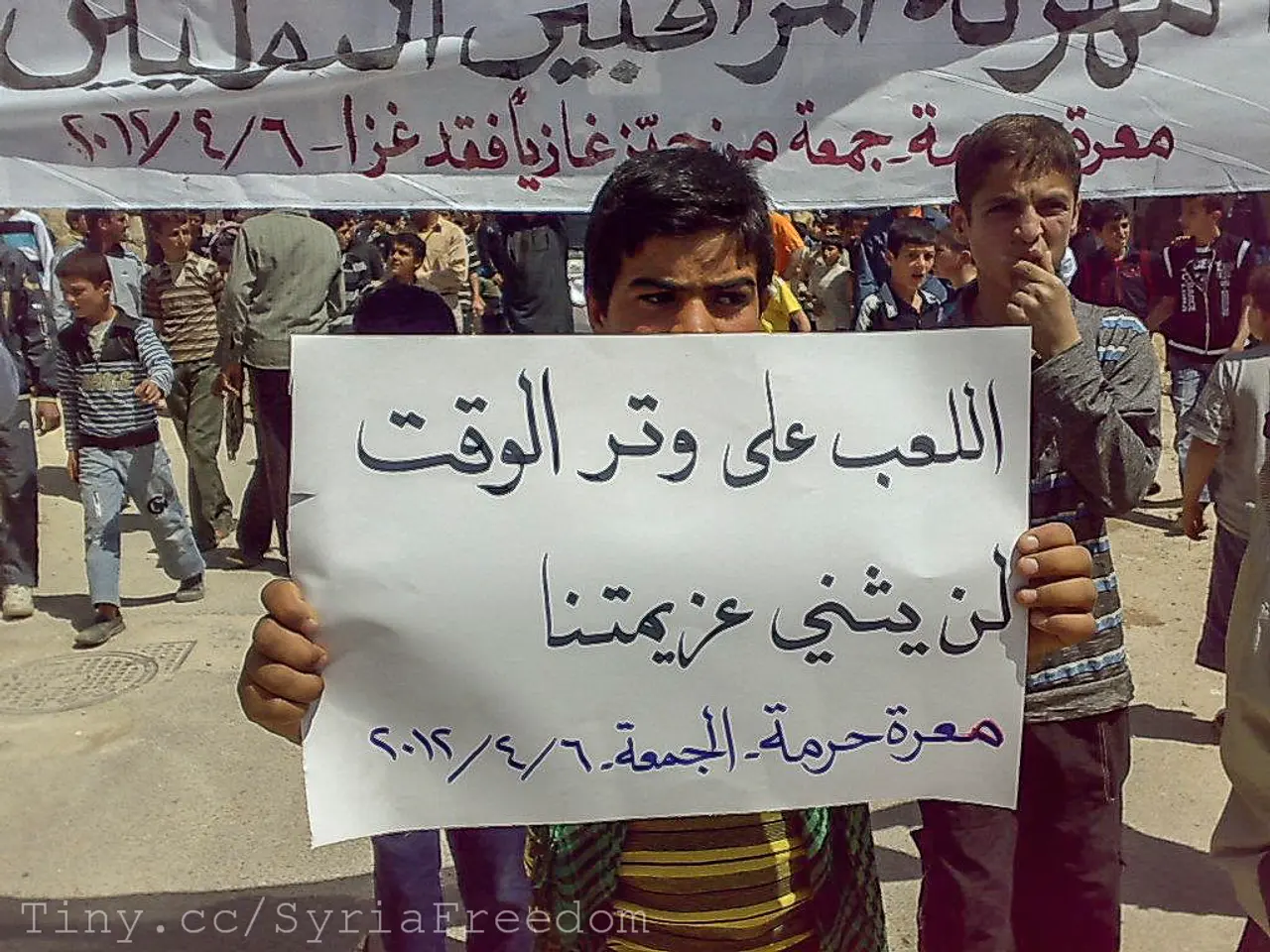Prosecution of Additional 60 Individuals by Civil RightsUK for Supporting Banned Palestine Action Group Following Controversial Ban on July 7, Resulting in Over 700 Peaceful Protest Arrests.
The UK government's decision to outlaw Palestine Action as a terrorist organisation on 5 July 2025 has sparked a significant debate, with critics arguing that the move could stifle political dissent and free speech. The government's justification for the ban was primarily based on a security breach at the RAF Brize Norton military base, where members of Palestine Action vandalised military aircraft and caused property damage estimated at £7 million.
The government views these acts as serious threats warranting counter-terrorism measures. However, critics, including Amnesty International, the UN Human Rights Chief Volker Türk, and civil liberties groups like Liberty, argue that the UK's terrorism definition is overly broad. They contend that it includes acts causing serious property damage but not necessarily intended to harm or kill people, which diverges from international norms.
The consequences for supporters of Palestine Action are severe. The proscription makes it a criminal offence to be a member of, express support for, or even wear affiliation items related to Palestine Action. Since the ban, over 700 people have been arrested, with hundreds facing potential prison sentences of up to 14 years if charged.
Prime Minister Keir Starmer has announced that the UK will recognise the state of Palestine by September, unless Israel takes "substantive steps" to end its war on Gaza and commits to a lasting peace process. However, many protesters believe this is not enough to address the ongoing conflict.
The Metropolitan Police has already charged three individuals for supporting Palestine Action, with the Director of Public Prosecutions, Stephen Parkinson, stating that many more prosecutions can be expected in the next few weeks. The UK's Equality and Human Rights Commission has warned against a "heavy-handed" approach and urged the government and police to ensure protest policing is proportionate and guided by clear legal tests.
The actions of Palestine Action, including the break-in at the air force base, have been cited as reasons for the group's outlawing as a "terrorist organization". However, the group has stated that its actions target the UK's indirect military support for Israel amid the war in Gaza.
The UK has seen hundreds of thousands of demonstrations for nearly two years, calling for an end to Israel's war on Gaza and for the British government to stop all weapons sales to the country. The largest number of arrests at a single protest in the capital's history occurred last weekend, with 522 arrests. At least 60 people are expected to face prosecution for showing support for Palestine Action.
Critics, including the United Nations, Amnesty International, and Greenpeace, have called the ban an overreach that risks stifling free speech. The Metropolitan Police Commissioner, Mark Rowley, praised the rapid coordination between officers and prosecutors. Despite the controversy, the government remains firm in its decision, stating that it is necessary for maintaining national security.
- The UK's decision to designate Palestine Action as a terrorist organization in July 2025 has prompted intense debates over potential limitations on political dissent and free speech.
- Critics, including Amnesty International, the UN Human Rights Chief Volker Türk, and civil liberties groups like Liberty, argue that the UK's definition of terrorism is excessively broad and fails to align with international norms.
- As a result of the ban, hundreds of people have been arrested, and many are facing potential prison sentences up to 14 years if charged, if they are found to have been members, expressed support for, or worn affiliation items related to Palestine Action.
- Prime Minister Keir Starmer announced that the UK will recognize the state of Palestine by September unless Israel takes significant steps to end its war in Gaza and commit to a lasting peace process, but protesters believe this is not enough to resolve the ongoing conflict.
- The Metropolitan Police has charged three individuals for supporting Palestine Action, with hundreds more expected to face prosecution in the coming weeks, and critics, including the United Nations, Amnesty International, and Greenpeace, have expressed concerns that these actions risk stifling free speech and human rights.







